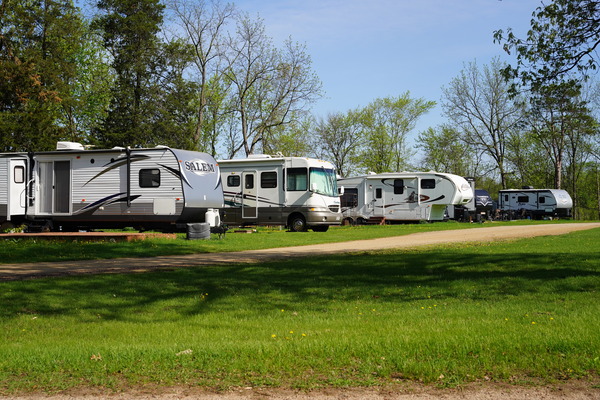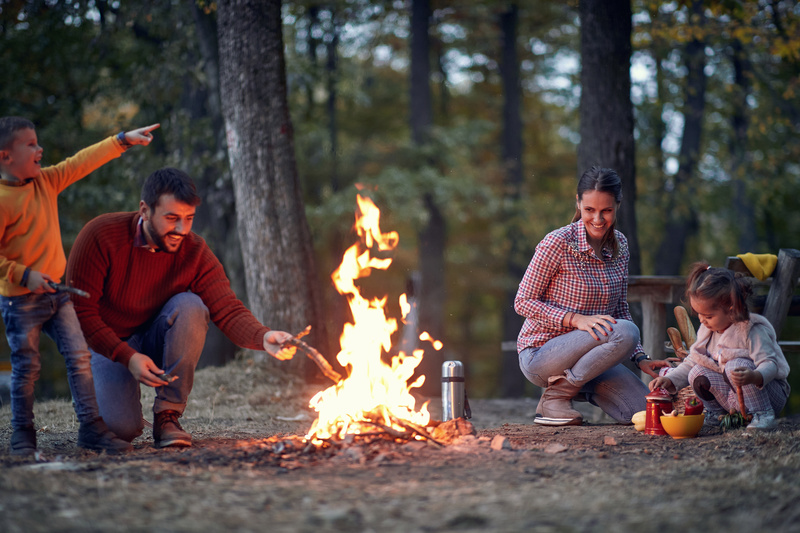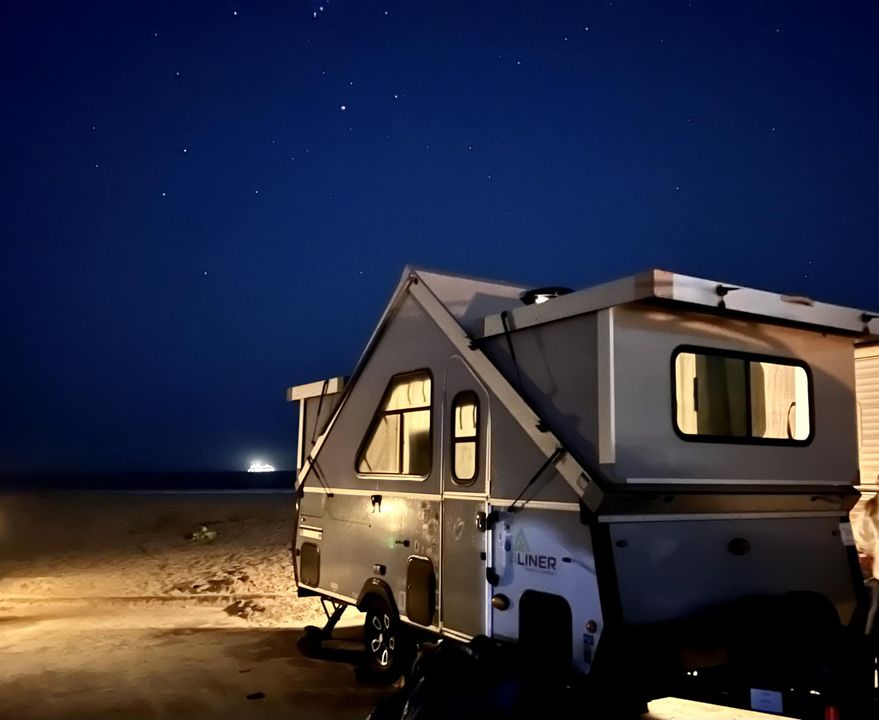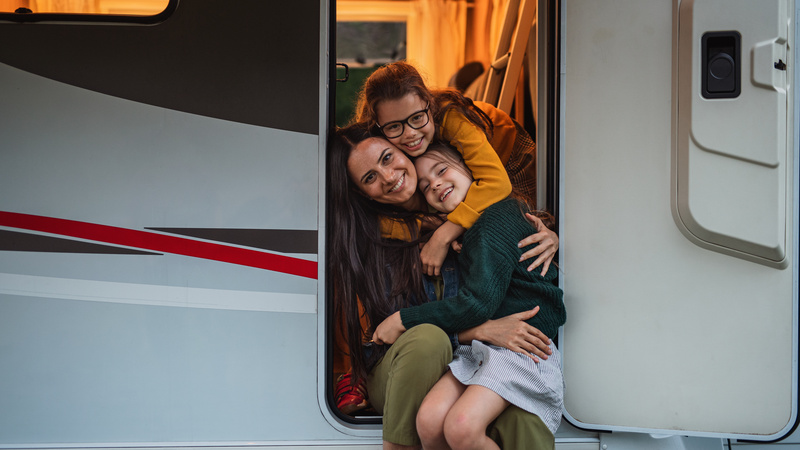Ready to Buy a Class C RV? Here’s What You Need to Know
Your Essential Guide to Class C Motorhomes
Before you decide to buy a Class C RV, or any other RV, it’s important to properly research and understand the different aspects of each type of camper. At Juniata Valley RV, we offer a range of Class C motorhomes that blend comfort, convenience, and affordability. We’re here to help you understand the basics of Class C RVs, highlight their standout features, and answer the most frequently asked questions so that you can make an informed decision when you purchase. Whether you’re planning cross-country trips or weekend getaways, we’ll help you decide if a Class C is right for you.
What is a Class C motorhome?
A Class C motorhome is a type of RV that is built on a truck or van chassis with an attached cab section, which is often derived from commercial truck or van models. This design typically features a distinctive over-cab area, which can be used for extra sleeping or storage space.
Class C motorhomes are known for their balance of size and maneuverability. This makes them a popular choice for families and individuals who want the amenities of larger RVs but prefer something easier to drive and more fuel-efficient. They usually include full living accommodations, including sleeping areas, a bathroom, kitchen facilities, and ample storage. They’re ideal for both long trips and occasional getaways.
Can a Class C RV tow a car?
Yes, a Class C RV can tow a car. Many people choose to tow a vehicle behind their Class C motorhome. This way, once they set up camp, they can easily travel locally in their day-to-day vehicle.
The tow capacity of a Class C RV can vary widely depending on the specific model and its engine, chassis, and structural specifications. On average, Class C RVs can tow between 3,000 to 8,000 pounds. Some heavier-duty models may even have towing capacities that exceed this range, capable of towing up to around 10,000 pounds. Owners should check the specific towing guidelines and limitations provided by the manufacturer for their particular model. This ensures that they remain within safe operational limits and avoid any potential damage to the vehicle’s drivetrain or chassis.
How tall is a Class C RV?
The height of a Class C RV depends on the specific model and any additional features like air conditioning units or satellite dishes installed on the roof. Generally, most Class C motorhomes are between 10 to 12 feet tall. It’s important for owners to know the exact height of their RV to navigate clearance in areas such as underpasses, bridges, and certain drive-thrus. Always check your specific model’s details for precise measurements.
How wide is a Class C RV?
The width of a Class C RV typically ranges from about 8 to 10 feet. This size allows for a comfortable balance between interior living space and ease of maneuverability on the road. When planning to buy a Class C RV, it’s important to consider the width as it affects not only where you can travel—such as narrow roads or campsites—but also how comfortably you can live and move around inside the vehicle. Always verify the specific dimensions of the model you are interested in to ensure it meets your expectations and is reasonable for the places you plan to visit.
How do I level a Class C motorhome?
Leveling a Class C motorhome is essential for both comfort and the proper functioning of onboard appliances like refrigerators. Here’s a step-by-step guide on how to level your Class C motorhome:
Choose the Right Spot: Before you start leveling, make sure you’re parked on a stable, flat surface. Avoid soft ground where possible, as it can shift under the weight of your motorhome.
Check Initial Level: Use a bubble level or an electronic leveling system to determine how uneven the motorhome is. Some people place levels in the freezer compartment of their refrigerator, as it’s essential for the fridge to be level to function correctly.
Use Leveling Blocks or Jacks:
Leveling Blocks: These are stackable blocks that you drive onto to raise the motorhome. Place them under the tires on the lower side of your motorhome to even it out.
Built-in Hydraulic or Electric Jacks: If your motorhome is equipped with these, use the control panel to extend the jacks and level the vehicle. Make sure to extend jacks only when the motorhome is as level as possible by using blocks, to avoid putting too much strain on one jack.
Adjust as Needed: After initially setting the blocks or extending the jacks, check the level again and adjust if necessary. It may take a few tries to get it perfectly level.
Secure the Vehicle: Once level, apply the parking brake and, if using blocks, ensure the motorhome’s wheels are choked to prevent rolling.
Double-check: Especially if you’re staying in one spot for a long time, recheck the level after the first day or so. The weight of the motorhome can cause it to settle.
Remember, it’s important to consult your specific motorhome’s manual for detailed instructions and safety warnings related to leveling, as procedures and recommendations can vary between different models.
How much does a Class C RV cost?
The cost of a Class C RV can vary widely depending on factors such as brand, size, features, and whether you’re purchasing a new or used model. At Juniata Valley RV, we carry Class C motorhomes from Gulf Stream and Winnebago, which are known for their quality and durability.
For new models, prices can start around $60,000 and go up to $150,000 or more for luxury or highly customized versions. Gulf Stream models are often priced in the more affordable range, offering excellent value for families looking to buy a Class C RV. Winnebago, renowned for innovation and quality, typically features models that can vary from mid-range to high-end prices.
Searching for used RVs for sale can be a more budget-friendly option, with prices depending on the condition, age, mileage, and upgrades. You can find many used models priced between $40,000 to $100,000. This can be a more reasonable choice for those looking to buy a Class C RV without stretching their budget.
Before you buy a Class C RV, consider what features are important to you, such as sleeping capacity, amenities, engine type, and overall condition. You want to find a motorhome that both meets your travel needs and fits a realistic budget.
Are Class C motorhomes safe?
Class C motorhomes are generally considered safe. Built on the chassis of trucks or vans, these vehicles inherit the safety features of passenger vehicles. Including airbags and modern safety technology. Their size and design lend stability that handles well under various conditions, making them less top-heavy and more maneuverable than larger Class A motorhomes. This enhances their safety, especially in tight turns and heavy traffic.
Additionally, many Class C motorhomes are equipped with advanced safety features such as rear-view cameras, side-view cameras, stability control, and anti-lock brakes. These aid in improving driver awareness and vehicle control. They also typically include multiple emergency exits, including escape windows and a roof hatch. When looking to buy a Class C RV, it’s important to choose models that offer these advanced safety features and to maintain the camper regularly to ensure ongoing safety.
Are Class C motorhomes easy to drive?
Class C motorhomes offer a more user-friendly driving experience compared to most other types of campers. Here’s how they stack up:
Compared to Class A Motorhomes:
Class C motorhomes are generally easier to drive than Class A motorhomes, which are much larger and often resemble buses. Class A’s can be intimidating due to their size and wide turning radius. Class C’s, built on a truck or van chassis, offer a driving feel closer to that of a large SUV or truck. This makes them less daunting and easier to handle, especially for those new to driving large vehicles.
Compared to Regular Cars:
Naturally, driving a Class C motorhome requires more attention to dimensions and road space than a regular car. They are wider, taller, and much longer, which affects maneuverability and stopping distance. However, for those transitioning from a car, a Class C offers a less steep learning curve than, say, a Class A motorhome.
Compared to Towing a Fifth Wheel or Travel Trailer:
Towing a fifth wheel or travel trailer involves additional considerations such as hitching, unhitching, and reversing with a trailer. These can be complex and stressful for inexperienced drivers. Class C motorhomes eliminate these challenges as they are self-contained units without the need for towing. This aspect makes them simpler to operate since you don’t have to worry about the pivot point of a towed trailer or the complications of reversing with a trailer attached.
While Class C motorhomes are larger and more cumbersome than regular cars, they are significantly easier to manage compared to Class A motorhomes. They can also be easier to wrap your head around when compared to towable setups like fifth wheels or travel trailers.
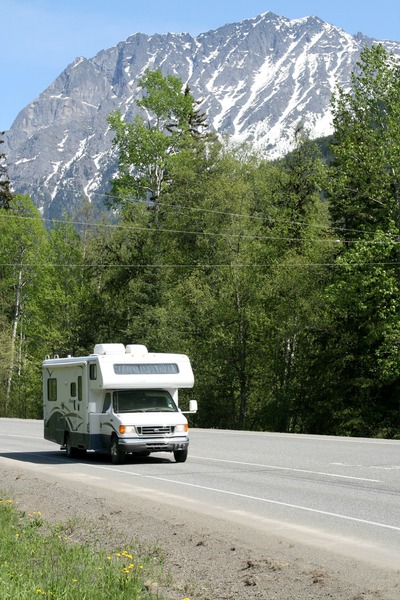
Explore Endlessly with Juniata Valley RV
A Class C motorhome offers an excellent balance of comfort, ease of driving, and safety. At Juniata Valley RV, we encourage you to buy a Class C RV from the selection available at our Pennsylvania RV dealership. We carry trusted brands like Gulf Stream and Winnebago, as well as a variety of other towable RVs for sale.
Visit us to explore our models and find the perfect RV. Our knowledgeable team is here to guide you through every step, helping you make an informed decision. Start your adventure today and experience the freedom of the open road with Juniata Valley RV.
Begin Your Adventure

